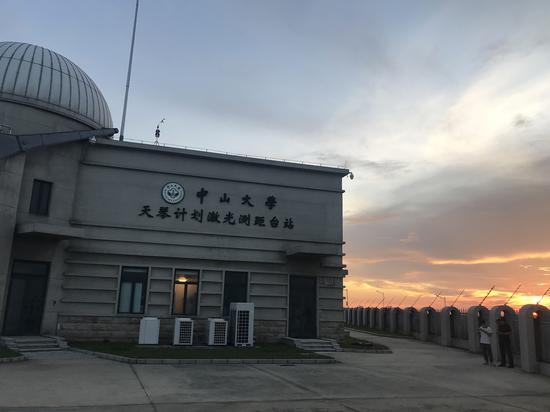China unveils gravitational-wave research center in Guangdong

A photo taken on Sept. 26 shows the laser ranging station of the program Tianqin at the Zhuhai Campus of Sun Yat-sen University in Zhuhai, Guangdong Province. (Xinhua/Wang Haoming)
A gravitational-wave research center under the China National Space Administration (CNSA) was inaugurated on Sunday in the city of Zhuhai, in Guangdong Province.
According to the CNSA, the gravitational-wave research center, located at the Zhuhai Campus of Sun Yat-sen University, will develop a series of experimental satellite platforms and payloads to promote China's space gravitational-wave detection.
At the inaugural ceremony, Wu Yanhua, deputy director of the CNSA, said that the CNSA and Sun Yat-sen University would build the research center into an international frontier for gravitational-wave detection.
The establishment of the research center is a new milestone for the Tianqin program, said Luo Jun, president of Sun Yat-sen University and an academician of the Chinese Academy of Sciences.
Luo noted that the center would bring together more experts to promote technological breakthroughs and innovation in China's independent space gravitational-wave detection and contribute to the development of China's space industry.
The Tianqin program, meaning "harp in the sky," was initiated by Sun Yat-sen University in 2015. It will consist of three satellites forming an equilateral triangle around the earth by 2035. Like a harp in space, the "harp's strings" will be plucked by any gravitational waves that arrive.
The Tianqin-1 satellite, the first satellite to test the technologies of the program, was launched on Dec. 20, 2019.
